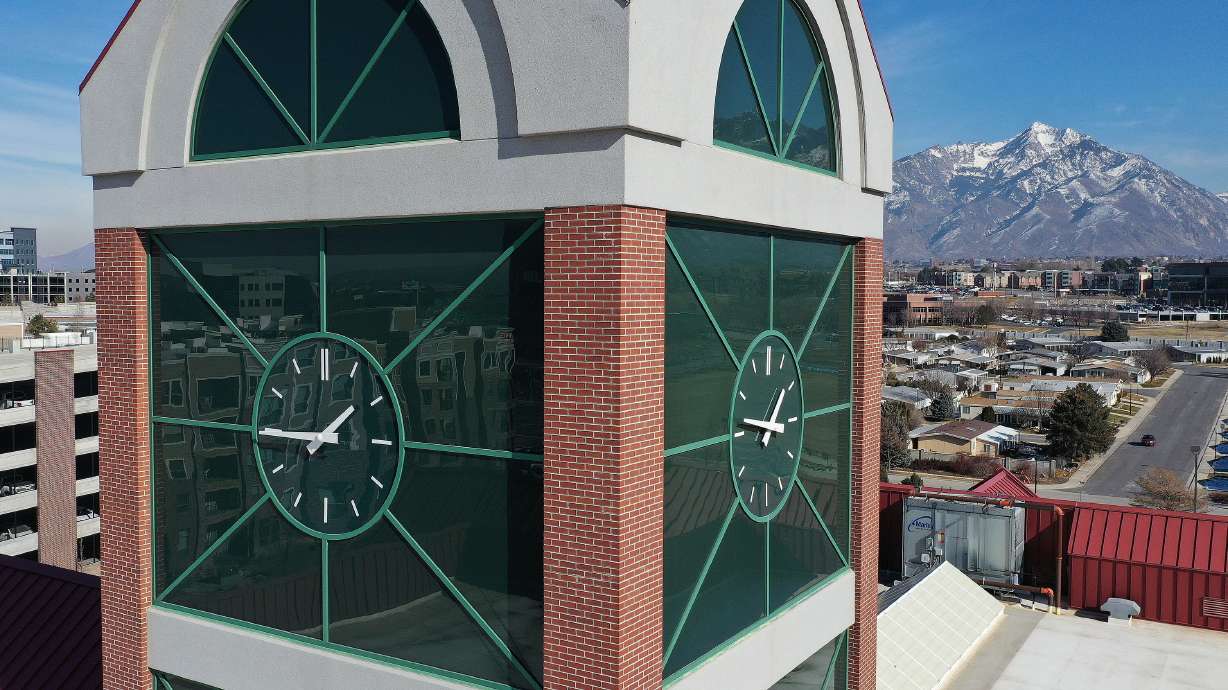Estimated read time: 3-4 minutes
This archived news story is available only for your personal, non-commercial use. Information in the story may be outdated or superseded by additional information. Reading or replaying the story in its archived form does not constitute a republication of the story.
- Elon Musk and Vivek Ramaswamy suggest ending daylight saving time.
- Sens. Marco Rubio and Mike Lee support making daylight saving time permanent. Utah has a law in place that says if Congress allows states to make daylight saving time permanent, the Beehive State would do so.
- Congress has not passed related legislation, despite public and political interest.
WASHINGTON — The two heads of the Department of Government Efficiency have floated the idea of ditching daylight saving time.
The changing of the clocks twice a year started back in 1916. A poll from YouGov shows ending it is a popular idea, but it would be up to Congress to do that.
Elon Musk posted on X, "Looks like the people want to abolish the annoying time changes!" To which, Vivek Ramaswamy responded, "It's inefficient & easy to change."
No official policy proposal has come out of the Department of Government Efficiency (a group tasked with looking at ways to slash the size and scope of the federal government). Again, Congress would actually make the change. One of Utah's own senators supports making a change.
About changing daylight saving, Sen. Mike Lee said in a post on X, "Let's pick a horse and ride it. No more changing every six months."
President-elect Donald Trump has weighed in on daylight saving time, too. Back in March 2019, Trump said in a post on X, "Making Daylight Saving Time permanent is O.K. with me!"
Two states — Arizona and Hawaii — have already opted out of daylight saving time. Across the other 48 states in the country, clocks go forward one hour in March and roll back one hour in November.
Sen. Marco Rubio has been at the forefront of trying to "lock the clock," as he puts it. He has introduced legislation to try to make daylight saving time permanent. It's called the Sunshine Protection Act, and he reintroduced it in 2023. Congress hasn't passed the bill.
"It's time to lock the clock and stop enduring the ridiculous and antiquated practice of switching our clocks back and forth," said Rubio in a press release. "Let's finally pass my Sunshine Protection Act and end the need to 'fall back' and 'spring forward' for good."
Sen. Ed Markey, a Democrat from Massachusetts, told The Washington Post he doesn't think switching the clocks makes sense. "But we need permanent daylight saving time — more hours of daylight in the evening means more hours to get things done."
Rep. Celeste Maloy reintroduced the Daylight Act in 2024 to allow states to have permanent daylight saving time if they want to.
Utah passed a law in 2020 saying if Congress allows states to observe permanent daylight saving time, the state would do so.
"Americans are tired of springing forward and losing sleep and falling back and losing sunlight," said Maloy. "Dozens of states, including Utah, have already passed laws to make daylight saving time permanent. The federal government needs to get out of the way and allow them to make that choice instead of mandating the needless practice of changing our clocks twice a year."
Congress hasn't passed the Daylight Act.
There's a debate over whether to switch to daylight saving time or to stick with standard time. Daylight saving time would mean more sunshine in the evening, but it would be darker in the morning. On the other hand, standard time would mean more light in the morning.
Some scientists say standard time is better for sleep patterns, according to NPR. "Our internal clock is better aligned with getting light in the morning, which, in turn, sets us up for better sleep cycles." But others want to have more light in the evening because it would allow people to go out and do things (and also spend more money to bolster the economy).









